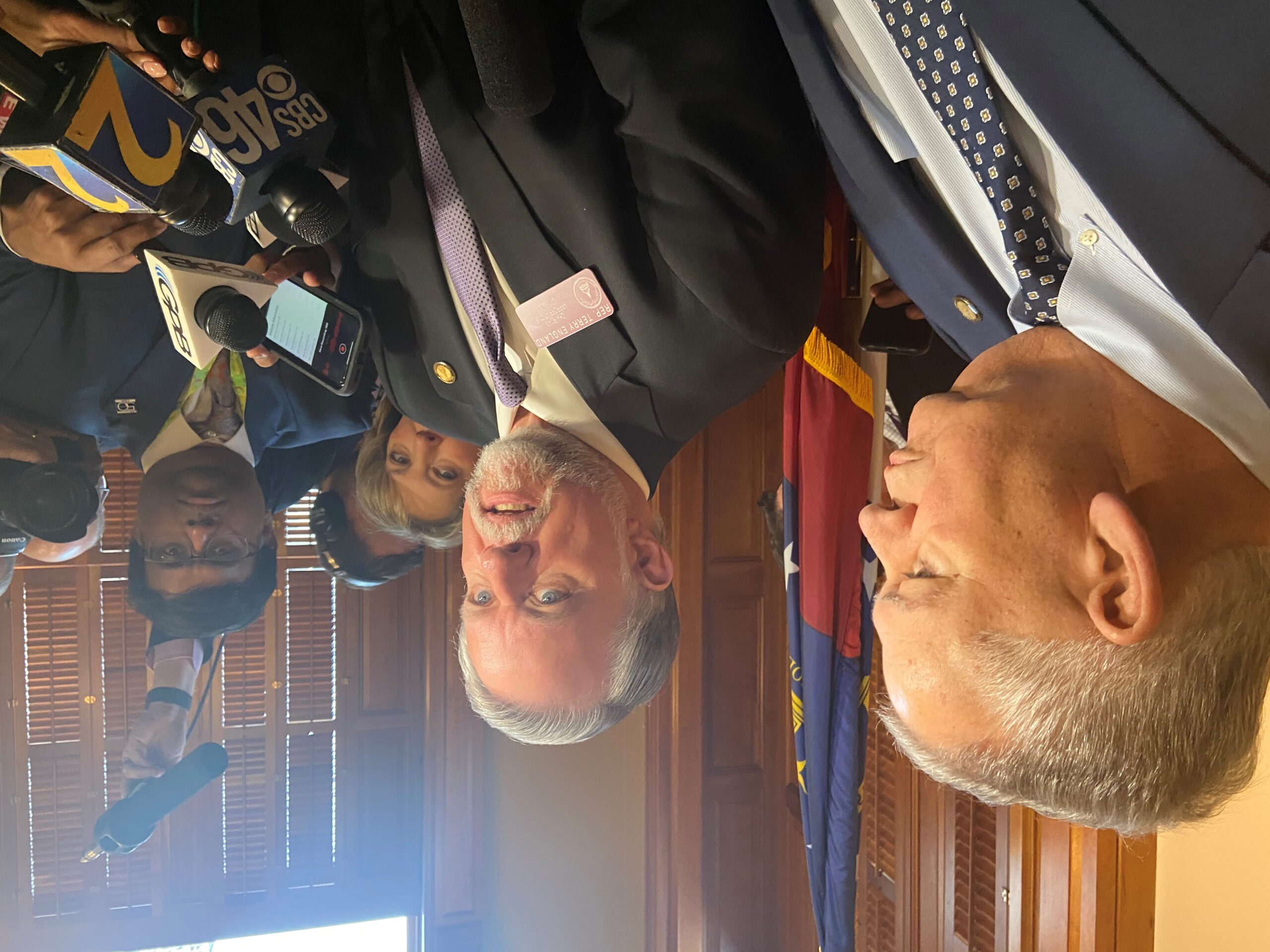Georgia State House Pushes Back On Many Of Kemp’s Proposed Budget Cuts In Amended 2020 Budget

Georgia House Speaker David Ralston (left) and House Appropriations Chair Terry England.
Emma Hurt / WABE
The Georgia State House of Representatives passed an amended budget for fiscal year 2020 Wednesday afternoon, pushing back on many of the budget cuts proposed by Gov. Brian Kemp.
The House rejected some cuts altogether, including more than $1 million in proposed vacancy eliminations at the Public Defenders Council and proposed cuts to training dollars for public defenders. State lawmakers also rejected proposed one-time cuts to the Rural Health Systems Innovation Center, cuts to the Mercer School of Medicine, the Medical College of Georgia Hospitals and Clinics, the Morehouse School of Medicine, and cuts to the Georgia Poison Center.
“We’ve tried our best with this budget to address needs of Georgians, and I think the amended budget that left the House today is a much better budget in terms of taking care of things that Georgians need than the budget that was proposed to us,” House Speaker David Ralston said.
Gov. Kemp mandated budget cuts across most state agencies in fiscal years 2020 and 2021 to meet adjustments for lower-than-expected state revenues following a 2018 cut to the state income tax rate and the economic blow of Hurricane Michael on agriculture, the state’s largest industry. State Rep. Terry England, who is chairman of the House Appropriations Committee, approximated Georgia has lost about $400 million in state revenue from the hurricane damage.
A change to the Title Ad Valorem Tax (TVAT) tax also shifted $170 million in state revenues to county governments.
Amid the budget cuts, the legislature continues to consider an additional cut to the state income tax rate this session, an option which was built into the 2018 tax cut legislation.
“I view that as a commitment that we made to the people of Georgia, the taxpayer of Georgia two years ago. And I think they expect Republicans to cut taxes,” Ralston said.
Democratic House Minority Leader Bob Trammell spoke against and voted against the amended budget on the grounds that the very need for budget cuts is the result of the “imprudent” choice of the 2018 income tax rate cut. He was joined by 45 other House members in voting no.
“What we’re about to pass off is paying the tab on that tax cut,” he said. The cuts are “are choices we’re supposed to have to make when times are tough.
“And when times are tough belt-tightening is expected, and everyone anticipates it. But the bad news is that we’re having to cut when times are good.”
Where did the money for the House’s amended budget adjustments come from?
England said much of it came from the judiciary branch, which includes some budgets he said that the governor’s office isn’t as able to evaluate as the legislature is.
“A fair amount of the dollars came out of the judiciary and some of the asks that they had,” England said. “A lot of the others were where we went through and combed through vacancies, delayed hires and captured additional savings there.”
Appropriations public safety subcommittee chairman Andy Welch said $14.5 million was saved from the judiciary and departments of corrections and public safety. Nearly $11 million, for example, came from a fund the Department of Corrections had previously dedicated to making their health records electronic, a project the agency had not completed. Another $1 million came from increasing commissary prices at state prisons by 5 cents.
An additional about $13 million came from adjustments to the state’s Quality Basic Education Formula, what England called “true ups.”
The blows of other proposed reductions were lessened in the House’s version of the budget, including reducing the proposed cuts to the agriculture experiment station and the cooperative extension service, protecting some proposed vacancy eliminations in the Georgia Bureau of Investigation’s forensic lab, reducing the cuts to supplemental state grant awards for local accountability courts and cuts to the Sickle Cell Foundation of Georgia.
The House added funds back to the Public Service Commission budget. Commission officials had called their financial situation “to the bone” and said furloughs would be the only way to fully accomplish the cuts.
The amended budget now moves before the Georgia State Senate, and the House will continue evaluating the FY 2021 budget proposal, which could very well be more difficult as it includes more of the governor’s priorities, like an additional $2,000 pay raise for public school teachers, costing the state $369 million.
“We’ve got a lot of competing priorities in that budget so, it’ll be challenging, but we’ll get through it,” Ralston said.








